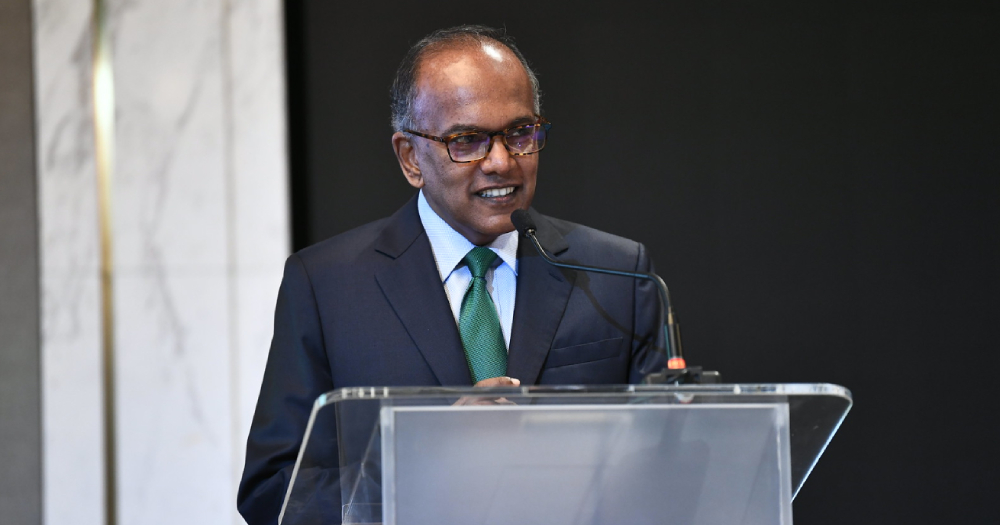The government will be updating the Maintenance of Religious Harmony Act (MRHA), Home Affairs and Law Minister K. Shanmugam said on Wednesday, July 24.
This was decided after extensive consultations with the various stakeholders at different levels, he added.
Shanmugam was speaking at the Forum on Religion, Extremism and Identity Politics, an event that was jointly organised by think tank Institute of Policy Studies (IPS) and the Ministry of Home Affairs (MHA).
It brings together academics, government officials and religious leaders to discuss the global threat of extremism, the interconnected ties between politics and religion, as well as the ways to combat such emerging threats that disrupt societal peace.
Maintenance of Religious Harmony Act to be updated
The MRHA is one of the legislative levers that Singapore has in place to deal with potential threats to religious harmony.
Enacted in 1990, and came into force in 1992, the act does as its name suggests, which is to provide for the maintenance of religious harmony.
However, there is now a need to update this Act, Shanmugam said.
When asked during the question and answer session how and when the MRHA will be changed, Shanmugam replied by first pointing out the effort the government took 30 years ago to "make sure it was understood, accepted by the population" as to why it was needed.
He added that while it has to be updated, it needs to be done with the agreement of the stakeholders at different levels.
This is why the government has had extensive discussions with different religious leaders and groups for a long period, and that they all agree broadly with the direction that the country should go.
"Looking at the trends both in the region and the world, that's pretty essential, that we keep up with the times," he said.
After such discussions with the various stakeholders, the issue will then be discussed in Parliament, he added.
He added that while some people within the population might think that we now live in a society where religion is less emphasised, such a perception does not reflect reality.
Singapore did not leave its religious harmony to chance
Contrary to what they might think, religion is still on the minds of many Singaporeans, he said.
To illustrate his point, Shanmugam mentioned a survey conducted by the University of Chicago and IPS in 2018, which showed that the majority of Singaporeans felt that religion is still relevant today, and that it will continue to have a role in the future.
While many other countries move on after racial and religious riots happen, Singapore decided to do something about it, he said.
Unlike other countries, Singapore did not leave its religious harmony to chance, he added.
Political will needed to maintain religious harmony
Shanmugam also said that the political will to charge people when they "cross the line" is needed.
But such legal framework alone is not enough.
This is why the government works actively together with religious leaders to encourage people to come together, and to promote racial harmony among different religious segments of society, he said.
"The government will take steps, and makes no apologies for it," he said.
He raised an example of a Muslim cleric who made some religiously insensitive comments in 2017, which might have went unnoticed if they were spoken other countries.
However, Singapore takes such issues much more seriously, and the government remains unapologetic for asking the religious leader to leave the country, he asserted.
And thanks to such an approach, Singapore has been successful so far in maintaining religious harmony, he added.
Top image by Jacky Ho, for the Institute of Policy Studies, NUS
Related stories:
If you like what you read, follow us on Facebook, Instagram, Twitter and Telegram to get the latest updates.
